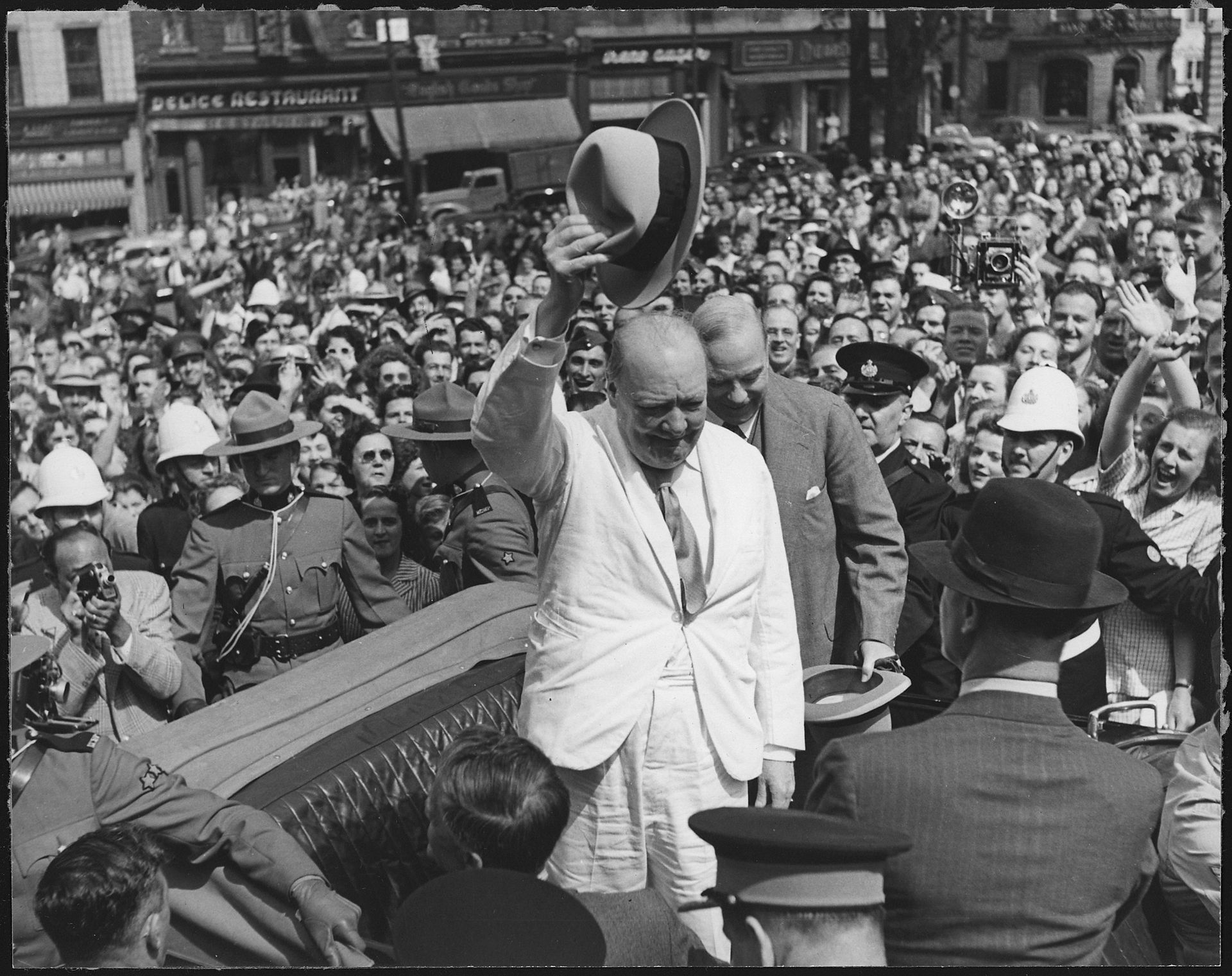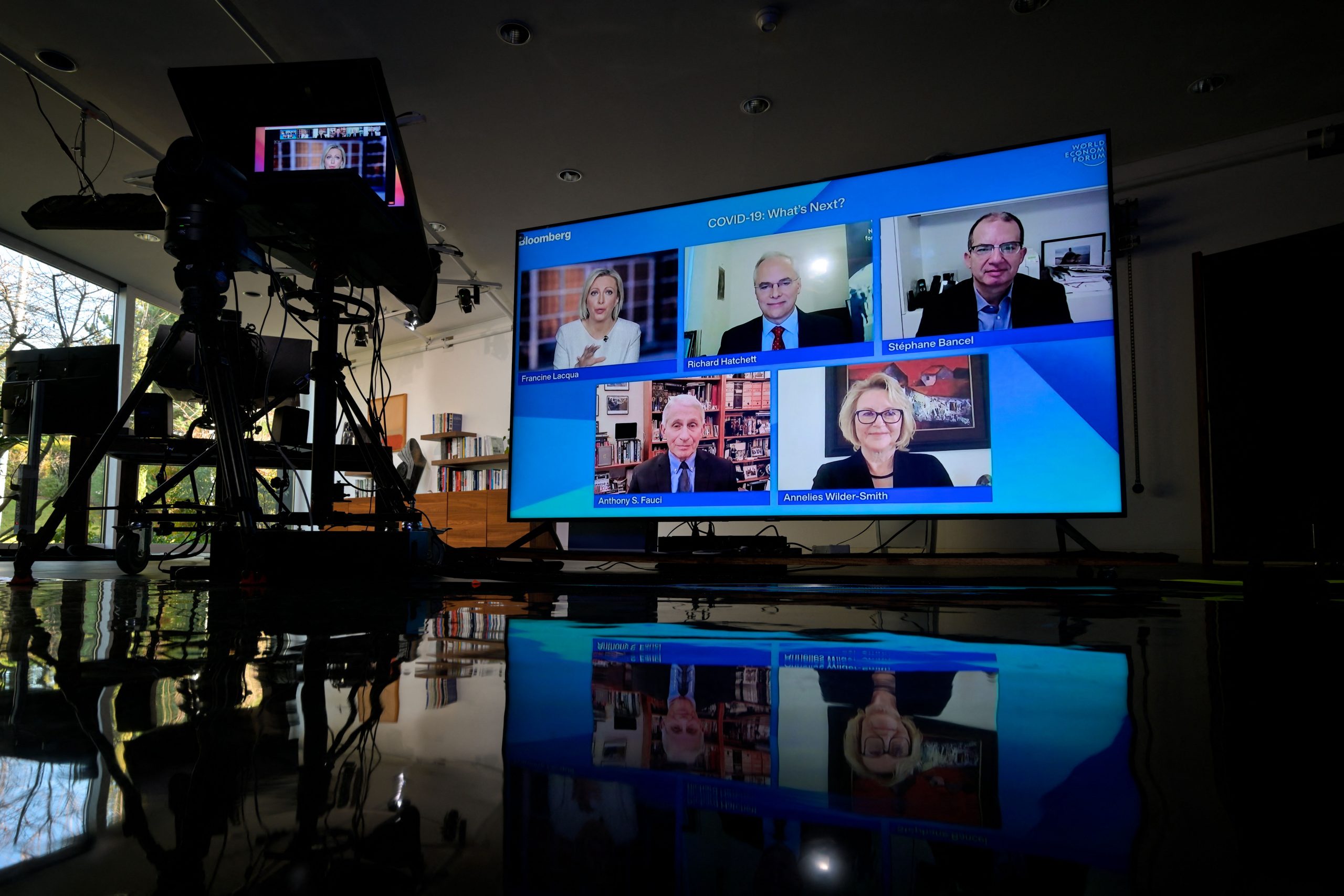The number one obstacle to vaccine uptake is vaccine propaganda.
Celebrating National Winston Churchill Day

Excerpt from "Fifty Years Hence"
On April 9, 1963, President Kennedy bestowed honorary citizenship on Winston Churchill. Today we continue a tradition of remembering our great friend and ally from across the pond by excerpting a portion of his “Fifty Years Hence” essay (1931), a piece not only for the present moment, but for all time — Eds.
It is indeed a descent almost to the ridiculous to contemplate the impact of the tremendous and terrifying discoveries which are approaching upon the structure of Parliamentary institutions. How can we imagine the whole mass of the people being capable of deciding by votes at From the Report of the Committee With Studies of Administrative Management in the Federal Government lections upon the right course to adopt amid these cataclysmic changes? Even now the Parliaments of every country have shown themselves quite inadequate to deal with the economic problems which dominate the affairs of every nation and of the world. Before these problems the claptrap of the hustings and the stunts of the newspapers wither and vanish away. Democracy as a guide or motive to progress has long been known to be incompetent. None of the legislative assemblies of the great modern states represents in universal suffrage even a fraction of the strength or wisdom of the community. Great nations are no longer led by their ablest men, or by those who know most about their immediate affairs, or even by those who have a coherent doctrine. Democratic governments drift along the line of least resistance, taking short views, paying their way with sops and doles, and smoothing their path with pleasant-sounding platitudes. Never was there less continuity or design in their affairs, and yet towards them are coming swiftly changes which will revolutionize for good or ill not only the whole economic structure of the world but the social habits and moral outlook of every family. Only the Communists have a plan and a gospel. It is a plan fatal to personal freedom and a gospel founded upon Hate.
Certain it is that while men are gathering knowledge and power with ever-increasing and measureless speed, their virtues and their wisdom have not shown any notable improvement as the centuries have rolled. The brain of a modern man does not differ in essentials from that of the human beings who fought and loved here millions of years ago. The nature of man has remained hitherto practically unchanged. Under sufficient stress—starvation, terror, warlike passion, or even cold intellectual frenzy—the modern man we know so well will do the most terrible deeds, and his modern woman will back him up. At the present moment the civilizations of many different ages co-exist together in the world, and their representatives meet and converse. Englishmen, Frenchmen, or Americans with ideas abreast of the twentieth century do business with Indians or Chinese whose civilizations were crystallized several thousands of years ago. We have the spectacle of the powers and weapons of man far outstripping the march of his intelligence; we have the march of his intelligence proceeding far more rapidly than the development of his nobility. We may well find ourselves in the presence of ’the strength of civilization without its mercy’.
It is therefore above all things important that the moral philosophy and spiritual conceptions of men and nations should hold their own amid these formidable scientific evolutions. It would be much better to call a halt in material progress and discovery rather than to be mastered by our own apparatus and the forces which it directs. There are secrets too mysterious for man in his present state to know, secrets which, once penetrated, may be fatal to human happiness and glory. But the busy hands of the scientists are already fumbling with the keys of all the chambers hitherto forbidden to mankind. Without an equal growth of Mercy, Pity, Peace and Love, Science herself may destroy all that makes human life majestic and tolerable. There never was a time when the inherent virtue of human beings required more strong and confident expression in daily life; there never was a time when the hope of immortality and the disdain of earthly power and achievement were more necessary for the safety of the children of men.
After all, this material progress, in itself so splendid, does not meet any of the real needs of the human race. I read a book the other day which traced the history of mankind from the birth of the solar system to its extinction. There were fifteen or sixteen races of men which in succession rose and fell over periods measured by tens of millions of years. In the end a race of beings was evolved which had mastered nature. A state was created whose citizens lived as long as they chose, enjoyed pleasures and sympathies incomparably wider than our own, navigated the interplanetary spaces, could recall the panorama of the past and foresee the future. But what was the good of all that to them? What did they know more than we know about the answers to the simple questions which man has asked since the earliest dawn of reason—’Why are we here? What is the purpose of life? Whither are we going?’ No material progress, even though it takes shapes we cannot now conceive, or however it may expand the faculties of man, can bring comfort to his soul. It is this fact, more wonderful than any that Science can reveal, which gives the best hope that all will be well. Projects undreamed-of by past generations will absorb our immediate descendants; forces terrific and devastating will be in their hands; comforts, activities, amenities, pleasures will crowd upon them, but their hearts will ache, their lives will be barren, if they have not a vision above material things. And with the hopes and powers will come dangers out of all proportion to the growth of man’s intellect, to the strength of his character or to the efficacy of his institutions. Once more the choice is offered between Blessing and Cursing. Never was the answer that will be given harder to foretell.
-Winston Churchill, “Fifty Years Hence,” December 1931
The American Mind presents a range of perspectives. Views are writers’ own and do not necessarily represent those of The Claremont Institute.
The American Mind is a publication of the Claremont Institute, a non-profit 501(c)(3) organization, dedicated to restoring the principles of the American Founding to their rightful, preeminent authority in our national life. Interested in supporting our work? Gifts to the Claremont Institute are tax-deductible.
When “following the science” becomes pure quackery dressed up in cutting-edge native garb.
Government censorship of dissenting scientists needs to stop.
Modern science can’t give an account of itself.
Even the field of geology is rejecting science in the name of making political statements.
Climate catastrophe keeps getting delayed, yet our doom remains imminent.






